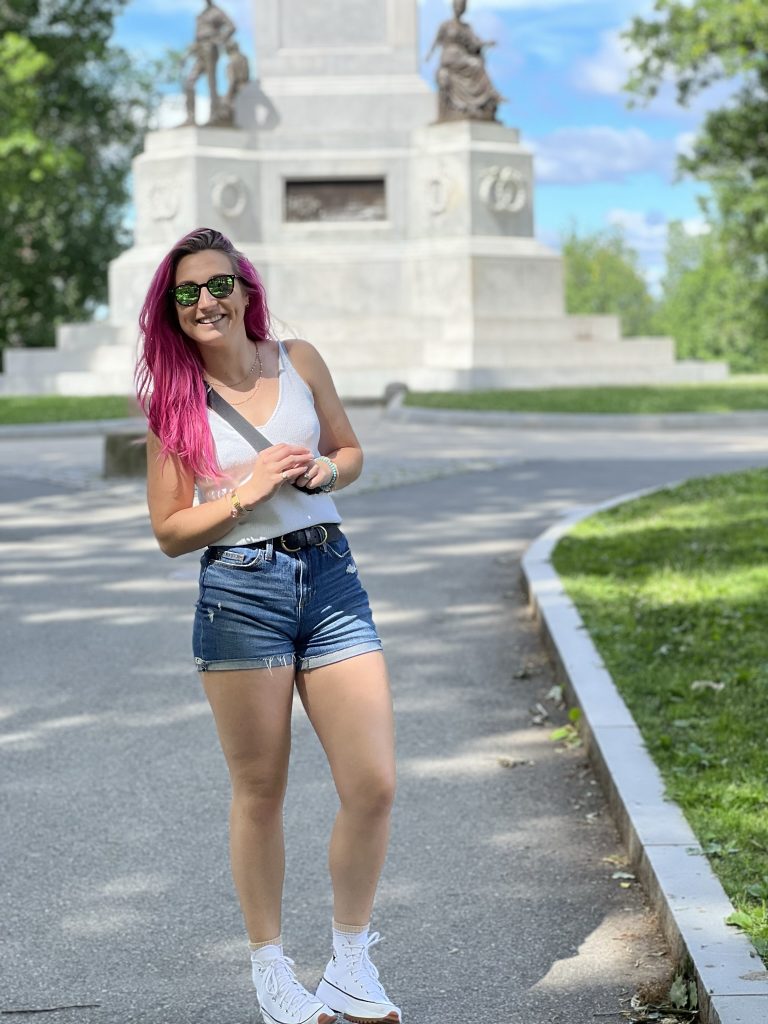
If you’re considering grad school, you’ve likely asked yourself a dozen questions before even deciding whether or not to apply. And yet, even after narrowing down where you want to go and study, applying, and being accepted (congrats!), you probably still have questions about what to expect once you get there.
While I can’t answer every question, I can share my experience as a student in Emerson’s Creative Writing MFA program.
Daily Routine
As a full-time student with a part-time job, my schedule mostly depends upon whether I have class. Luckily, the majority of classes for grad students are in the evening to accommodate those who work 9 to 5. Those evening classes allow you to keep your daytime routine pretty consistent.
I usually start my mornings around 7 a.m. with a (few) cup(s) of coffee. While I drink my coffee, I complete my morning pages – at least three pages of stream-of-consciousness freewriting. This practice is a great way to warm up your brain from The Artist’s Way by Julia Cameron. After my morning pages, I usually read an easy article to help me transition into my work.
Daily Routine: Days Without Class
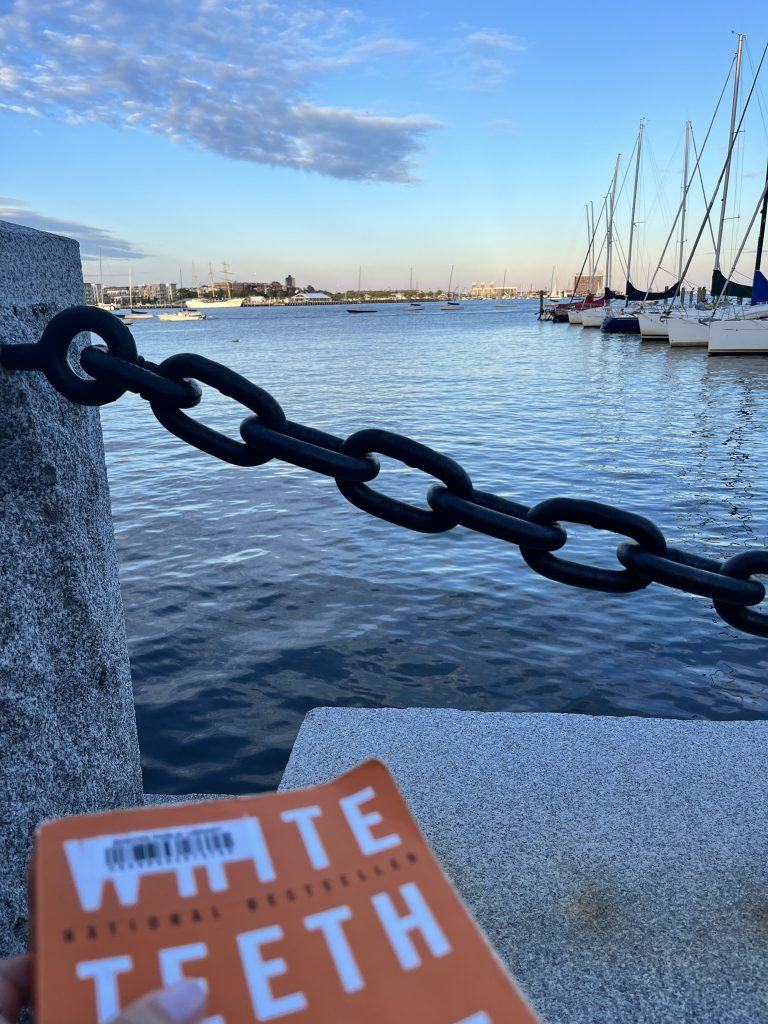
On my days without class I structure my day around any major writing I need to do. Sometimes that’s working on my latest fiction piece for workshop, and sometimes it’s a paper for another course. I like to schedule my work shifts for the days that I have class. That way, I have more uninterrupted time to write fiction.
Once I feel like I’ve made some decent writing progress, I’ll usually try to take a break. Depending on the day, I’ll squeeze in a workout, do some meal prep, or run errands. Then I’ll try to tackle any assignments or required readings, which can range from academic papers to a whole novel. Personally, as much as I love my classes at Emerson, the days I spend reading and writing are the ones that really make me feel like I’m living my dream!
Daily Routine: Days With Class
After my usual morning routine, I’m out of the apartment around 8 a.m.. To get to Emerson from the North End, I’ll either take the Green Line or walk about a mile. My first stop is usually the Writing, Literature, and Publishing graduate student lounge in the Ansin Building. Here I can set up shop to work for a few hours with one of my favorite views (and the free coffee doesn’t hurt either).
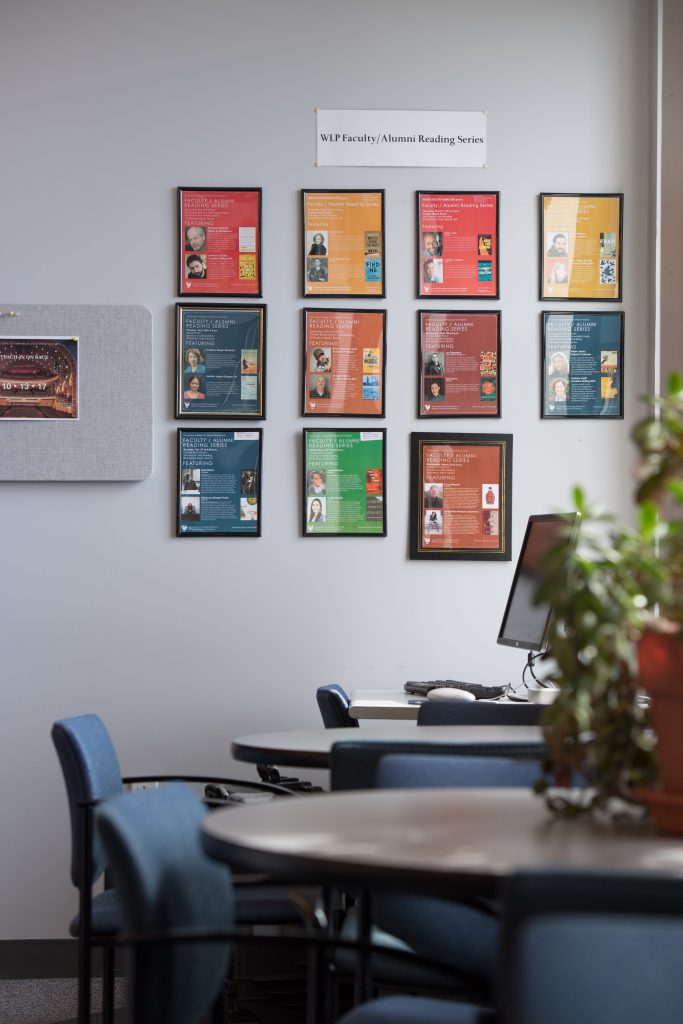
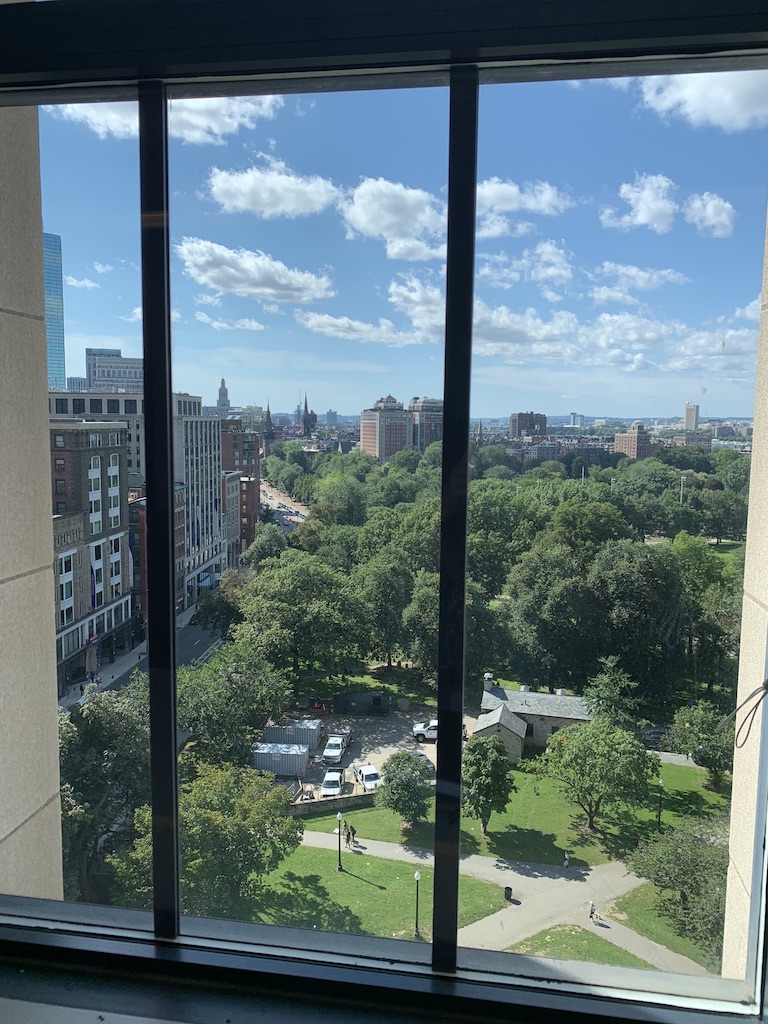
From there, my day pretty much revolves around classes. My first semester at Emerson, I took a course called Teaching College Composition. Emerson’s MFA in Creative Writing and MA in Publishing & Writing programs both offer grad students the opportunity to gain training and experience in teaching writing as instructors for the Writing Studies Program – from noon to 1:45. While this is a fairly uncommon class time for most graduate courses (you might find a section or two available), I did enjoy having extra evenings free!
After finishing up my work hours or afternoon class, I’ll head to the Common for some outdoor time and to eat lunch (weather permitting) or scope out a reservable private study room on Spacebook so that I can hang out on/near campus until my evening class from 6-9:45 p.m. Usually I’ll use this time to finish up any last preparations for class, like a final read-through or comments on a classmate’s workshop piece or reviewing an assigned reading for the upcoming session. On the rare days I don’t have homework left to do, I might risk a trip back home, especially if I haven’t made dinner to eat during a break in my evening class. Spending more than twelve hours on campus can be a lot!
Into the Evening
Perhaps the most important element of the MFA in Creative Writing is the workshop, which typically meets from 6-9:45 p.m. once a week. The main focus of any workshop is reading and critiquing your and your classmates’ original work, be it poetry, fiction, or nonfiction, and most professors will include some kind of lessons or readings on craft as they see fit. While it can certainly be daunting to submit your creative work to a room full of strangers, I’ve found the comments and questions from my classmates and professors at Emerson to be incredibly insightful and beneficial to my work – even if/when I didn’t like hearing them.
Though the class itself can feel long as it progresses into the evening hours, I almost always leave with a renewed sense of energy about my work.
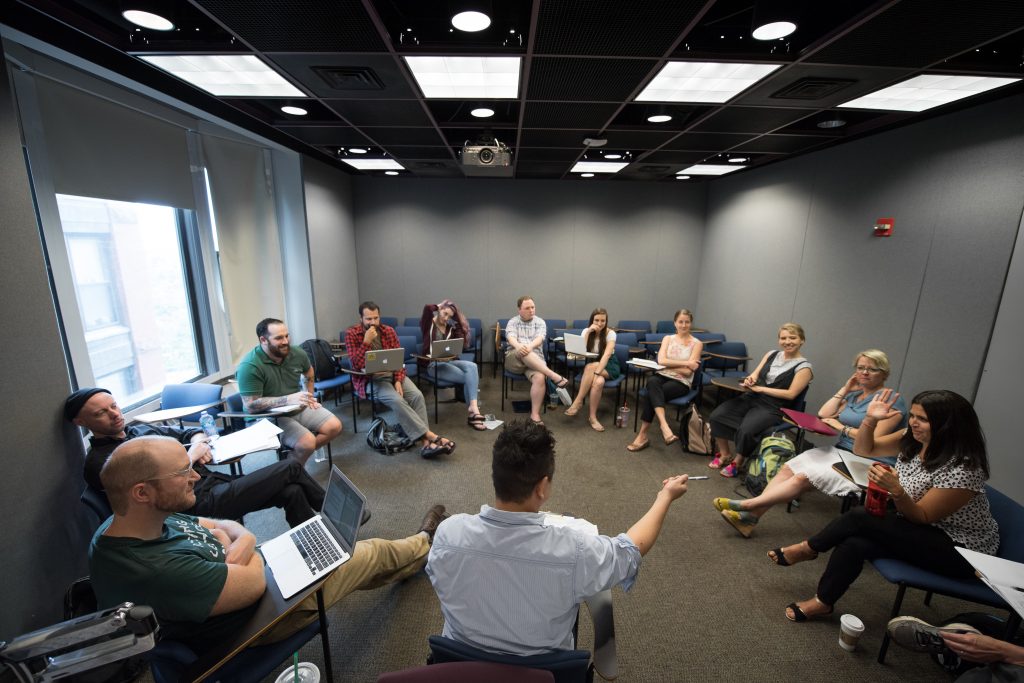
Making Time for Fun
As often as possible, I try to get together with a few of my friends in my cohort to catch up on what we’re working on, how classes are going, or anything else that we can particularly relate to as a group of writers.
Between graduate classes meeting once a week, or even online-only, and the solitary nature of writing, I found that this really helped me feel excited about my progress and connected to a community of creatives, even if it costs a few dollars or hours of sleep. (Check out this helpful list of free or discounted activities for students for some ideas!)
Otherwise, the most I can manage after class ends is summarizing important notes, jotting down a fleeting story idea, or catching a mindless TV episode before bed! Inevitably though, deadlines stack up, and I’ll find myself burning the midnight oil on an assignment at the last minute during the tougher parts of the semester – it can be really easy to de-prioritize your other activities when that happens, but don’t be like me! Taking care of yourself is hugely important to working sustainably on your writing. I try to make sure I take at least one day 100% “off” per week – meaning no academic assignments, reading, or writing – to give myself a break.
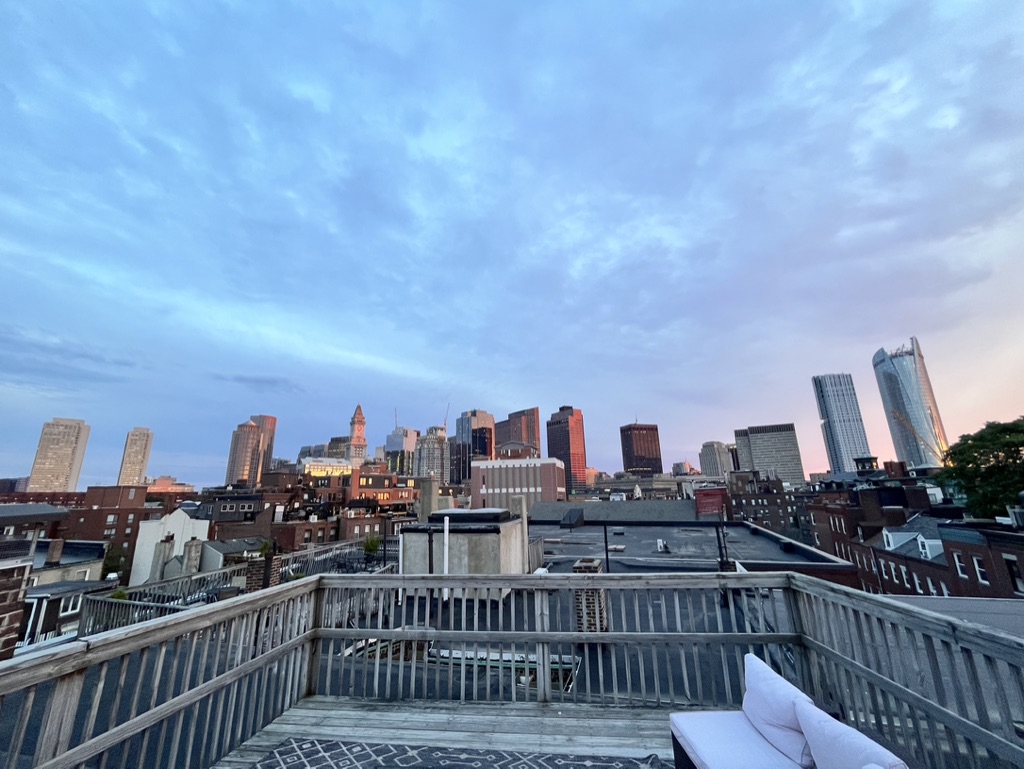
Hopefully this glimpse into a day in my life as a Creative Writing grad student at Emerson has inspired you to look into our many grad programs, or at least given you an idea of what to expect if you’re already headed to Boston! If it sounds like Emerson is the grad school for you, feel free to reach out to our graduate admission team for more information.


Seyni Barro
Hello,
Thank for this interesting information about Day in life of a creative Writing.at Emerson School.
I confirm here I really learn a lot.
It’s give me to take time and think seriously before started my application.
See you soon